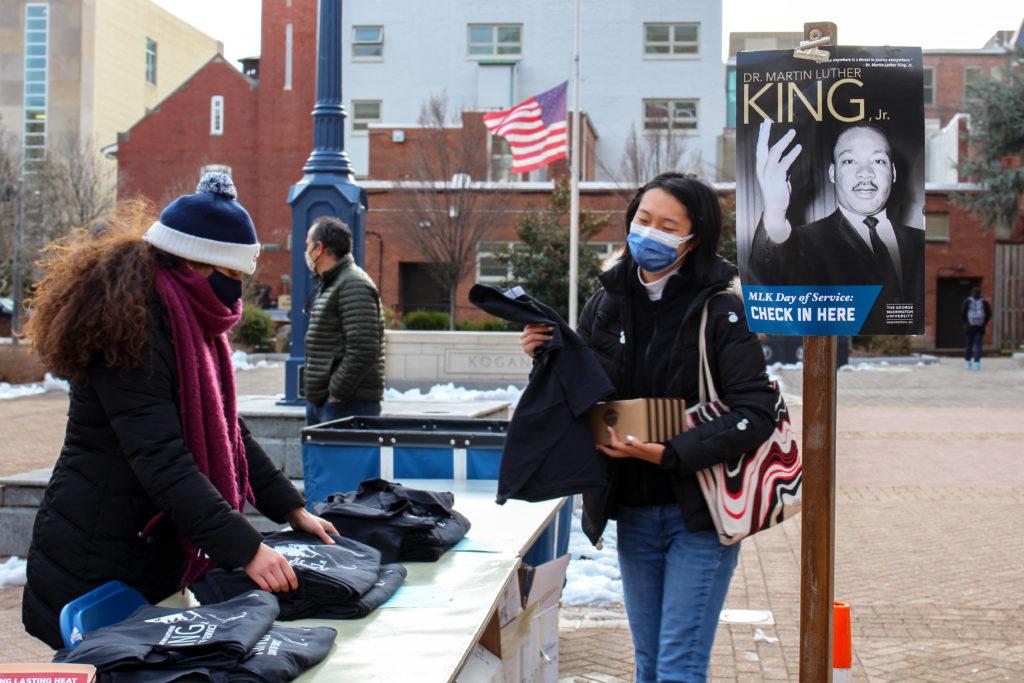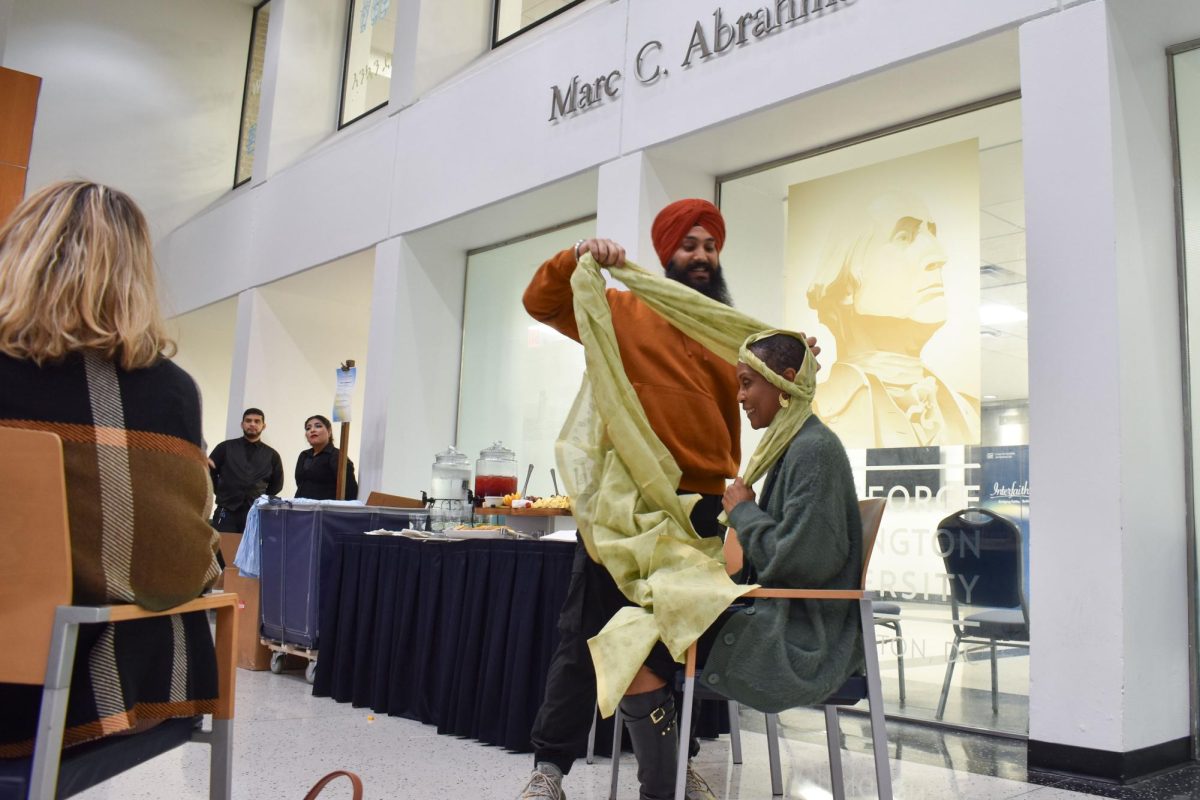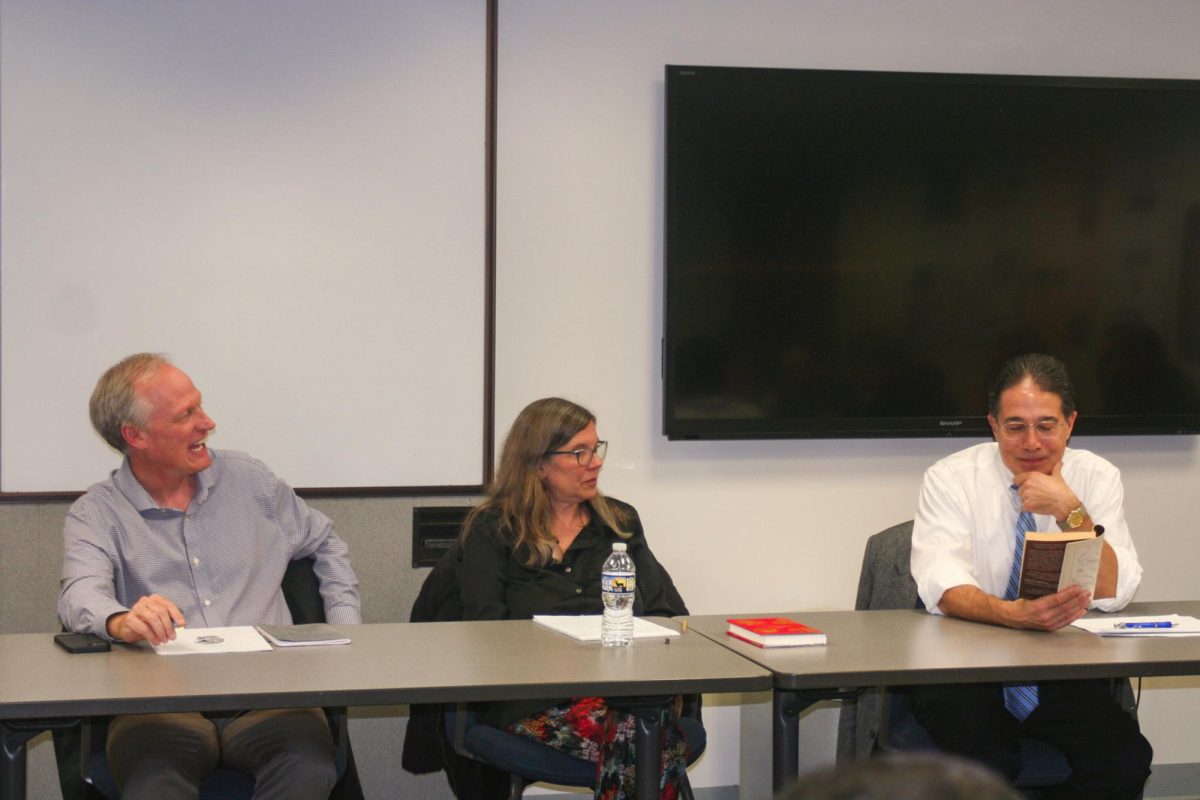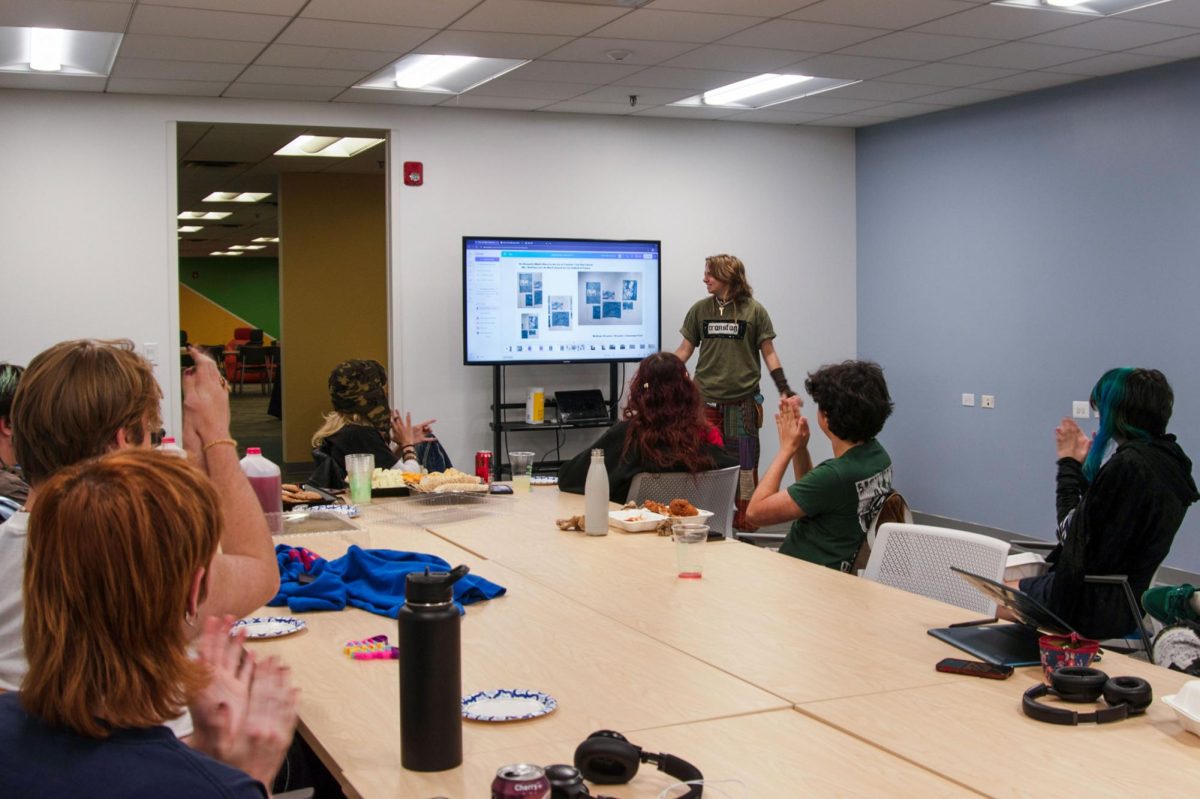A pair of education professors outlined the psychological violence facing African American students at predominantly white institutions Thursday as part of the keynote event of this year’s annual week-long celebration of Martin Luther King Jr. Day.
Denice Dortch, a professor of higher education administration, said she completed a yearlong study that followed nine African American students at a predominantly white institution in the Midwest where students relayed their stories about different forms of violence they experienced there. Nearly 180 students attended this year’s keynote event, which was hosted by the Graduate School of Education and Human Development.
“I was really honored to be selected as one of the MLK featured speakers for the week, given my topic in the subject matter that could be really receptive to understanding what the experiences may be like for African American students,” Dortch said in an interview.
The weeklong celebration also included GW’s annual Day of Service, which featured online service events and a keynote address from interim University President Mark Wrighton and D.C. Attorney General Karl Racine. The School of Medicine and Health Sciences will host its own annual King Week celebration next week with a pair of virtual discussions entitled “Advancing the Dream: We Cannot Walk Alone” Lecture Series.
Dortch said during her keynote address that attending a predominantly white institution as an African American student was like living within a “master’s house.” She said these institutions choose to permit only the “smallest” changes to address issues related to diversity, equity and inclusion.
“What you notice is that there’s always some type of excuse as to why changes can’t be made,” she said. “‘We don’t have enough money. We don’t have enough students. We don’t have enough interest. We don’t have the right people.’ It’s always simple. But what I noticed is that when the master wants the house to move, it moves.”
She said she began her research on psychological trauma at academic institutions after completing a larger project that examined why African American students earn so many fewer doctorate degrees than undergraduate degrees.
She said students shared their stories about psychological violence they experienced so she could best understand their experience at predominantly white institutions and contextualize their story in her research.
“What is psychological violence?” Dortch said. “It includes confinement, isolation, verbal assault, humiliation, intimidation, infantilization or any other treatment which may diminish the sense of identity, dignity and self worth.”
Dortch said she hoped her research and speech would help students gain a new understanding about the potential “humiliating” and “dehumanizing” violence that African American students may face when entering an academy.
“When you compound race, when you look at racism on top of that, the way in which African Americans experience the academy complicates that, and so they experience it differently,” she said.
Dortch said her research categorizes three types of psychological violence – situational, ephemeral or short-term, and multifarious or consisting of many types. She said she included nonverbal cues like stuttering or stammering in her quotes from student interviews to add another layer of analysis to contribute to students’ stories.
She said faculty who perpetuate racism at academic institutions can contribute to psychological violence, which can be “isolating” and “humiliating” for African American students.
“African American students are forced to navigate their own personal versions of psychological trauma as they’re navigating the academy, and I want people to know that, that this is what’s happening for them and we have a real responsibility to change,” she said.
Laura Engel, the other keynote speaker and an associate professor of international education and international affairs, said Dortch’s research highlights how diversity, equity and inclusion are situated within the structural components of academic institutions. She said reports of abuse and neglect of students often can go unreported at academic institutions.
“We’re also learning about how systemic influences shape those behaviors, give rise to them, incentivize them whether in more outright ways or in silence and through these processes of academic socialization,” she said.
She said university staff positions focusing on diversity, equity and inclusion are necessary to highlight perspectives of students who experience psychological violence at academic institutions.
“As [diversity, equity and inclusion] becomes this sort of, even nationally and globally, circulating discourse and education, something that education must embrace, because these perspectives that Dr. Dortch is bringing to our attention to shed light on and ask us to consider how discourses of diversity, equity and inclusion are situated against structural components that drive socialization patterns,” she said.
Riya Sharma contributed reporting.








